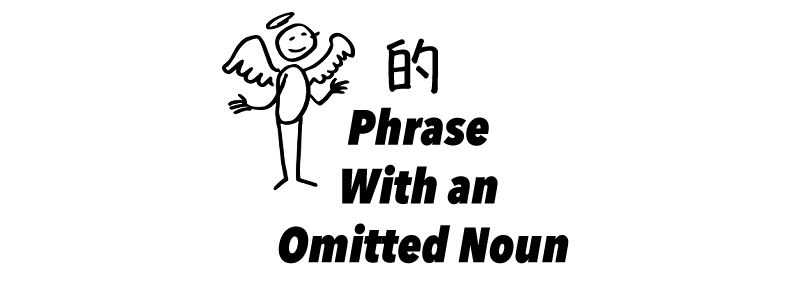<的 de>
的 de is a noun modifier that can be used to indicate possession or link an adjective or verb phrase to a noun.
V / Adj. / N+ 的 + N
Tiffany的狗Tiffany的狗
Tiffany’s dog (N + 的 + N)
可愛的狗可爱的狗
Cute dog (Adj + 的 + N)
我畫的狗我画的狗
The dog I draw (V + 的 + N)
我畫的狗很可愛我画的狗很可爱
The dog I draw is cute.
你做的飯很好吃你做的饭很好吃
The food you made is delicious.
<Without A Noun>
Frequently, we tend to omit the noun from the structure and simply use “Noun + 的 de” when both the listener and the speaker are aware of the object. This is somewhat akin to how we might say “the hot one” or “the old one” in English. In Chinese, “的 de” serves a similar function to the English word “one.” Employing this pattern allows you to circumvent the need to needlessly repeat the same noun time and time again.
這是我的狗,不是你的(狗)这是我的狗,不是你的(狗)
This is my dog, not yours.
有兩杯咖啡,你要熱的(咖啡)還是冰的(咖啡)?有两杯咖啡,你要热的(咖啡)还是冰的(咖啡)?
There are two cups of coffee. Do you want it hot or cold?
大的(something)很貴,我要小的(something)大的(something)很贵,我要小的(something)
The large one is very expensive. I want the small one.
我的手機是蘋果的(手機)我的手机是苹果的(手机)
My phone is an Apple one.
那本書是誰的(書)?那本书是谁的(书)?
Whose book is that?
你的狗是公的(狗)還是母的(狗)?你的狗是公的(狗)还是母的(狗)?
Is your dog male or female?


